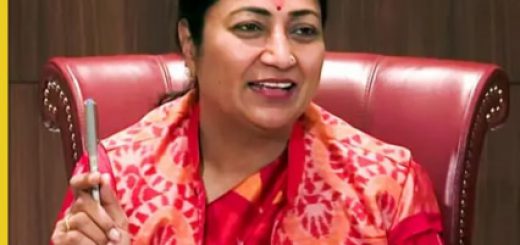The Sum and its Parts
Tanu Weds Manu Returns
Composer: Krsna
Lyrics: Raj Shekhar
It’s difficult to not have high expectations from the music of Tanu Weds Manu Returns. Its prequel (Tanu Weds Manu, 2011), which boasted of the same musical team, came with a cracker of a soundtrack. The music of this one finds excellence only in parts.
The album opens with Banno, aimed to be the film’s Saddi gali. Sung by Brajesh Shandilya and Swati Sharma, it also comprises a play on the age-old Banno teri akhiyaan surmedaani. The folk ditty finds a different interpretation as Banno teri swagger laage sexy. The arrangements are all euphoric dhols and drums, pounded to perfection. A tumbi also finds a pairing with electric guitar, but what really works in this track by guest composers Tanishq and Vayu is the harmonium piece towards the end that tweaks the famous interlude from Man dole mera tan dole (1954) as the song’s conclusion.
Composer Krsna and lyricist Raj Shekhar take over the reigns from here. The first one, Mat ja re, in Ankit Tewari’s voice, is just another song. It comes with dafli, violins and melancholy combination of the ’90s, which if attempted today, needs to be extremely crisp to find attention. This is followed by Jyoti Nooran’s Ghani bawari, delivered with much gusto. Krsna has gone with tumbi, bhapang and dhols in this upbeat Haryanvi number. The remix version, however, can be easily missed. Then comes Old school girl by Anmol Malik (Anu Malik’s daughter), a track that plays around with saxophones and pianos for a jazz touch. But the best moments lie in those trumpet pieces sprinkled all over. It’s a pleasant piece but does not stick. The song also has another version, with Kalpana Gandharva singing the same lyrics with a Haryanvi accent. Krsna uses mandolins and accordion pieces to replace the trumpet here. The song does sound funny for a bit, but soon turns pretentious in delivery. Move on by Sunidhi Chauhan comes from the modern marquee but retains the style of Mujhe mast mahaul. Chauhan is her usual brilliant self.
Krsna and Raj Shekhar, however, find their depth with Dev Negi’s Ho gaya and Sonu Nigam’s O sathi. The latter, by far, is also the album’s strongest composition. Some simple yet intelligently written lyrics, a soulful composition and revamped Nigam come together and deliver five-and-a-half minutes of bliss. The former is a breezy guitar track and sticks for its fuzziness. A tabla enters halfway through the song and leaves as softly as it arrives. It’s here that lyrics had an impact for the first time. The flow of thought in Pichhle mausam se, dhoop ke kuch qisse/ Dil jaakar le aaye, aur humko sunaye, while sticking to the meter, is wonderful. The addition of a shehnai towards the end nails it. The musical team’s previous work stands at a different pedestal. This one has its moments. We kept craving for the soul Rangrez had.
Source:: Indian Express






